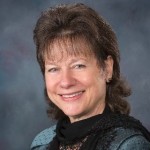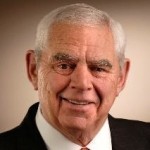Idaho school teachers can already use the Bible as a reference, but Sen. Sheryl Nuxoll wants a state law to underscore the point.
The Cottonwood Republican is pushing a bill to that effect, and the Senate Education Committee gave the idea its preliminary approval.

“A lot of teachers are scared to use the Bible,” Nuxoll said.
The one-paragraph bill says the Bible would be expressly permitted for use as a reference for “literature, comparative religion, English and foreign languages, United States and world history, comparative government, law, philosophy, ethics, astronomy, biology, geology, world geography, archaeology, music, sociology and other topics of study.”
No student would be required to study the Bible, if the student or parent objected.
Nuxoll said her bill is modeled after legislation in 10 other states.
The committee voted to introduce the bill, but not without resistance.
Sen. Janie Ward-Engelking, D-Boise, questioned the need for the law, since teachers can already use the Bible anyway.
“Once we start spelling out religious texts,” she said, “we open up the door to spelling out many, many more.”
“That, I guess, could be a possibility,” Nuxoll said. However, she drew a distinction between the Bible and other religious texts, saying the Bible is “embedded” in American culture.
Senate Education voted to print the bill, with Ward-Engelking voting no. With that introduction, the bill could come back to the committee for a full hearing.
In other Statehouse news Thursday:
SBAC. State superintendent Sherri Ybarra and her new testing director fielded some tough questions about the rollout of Idaho’s new online standardized test.
The first year of the Smarter Balanced Assessment Consortium exam was fraught with grading delays. School officials didn’t receive test scores until summer vacation — weeks after the 10-day grading window spelled out in the SBAC contract.
More than 182,000 students took the math and English language arts assessment, during a testing period that ran from March through May.

Sen. Lori Den Hartog, R-Meridian, asked whether the state sought damages from SBAC vendors.
Ybarra said her department discussed the matter with legal counsel, but decided against seeking damages. She said it wasn’t even clear what sort of damages the state could have received.
“It wasn’t substantive enough to really seek damages,” Ybarra told Senate Education. “We are working very closely with them. … They get one more chance.”
The delays did cause real problems, said Senate Education Chairman Dean Mortimer, R-Idaho Falls, “because we didn’t have the information we needed for our teacher evaluations.”
Ybarra didn’t disagree, but also pointed out that teacher evaluations are due May 1, in the midst of the SBAC testing window.
The SBAC vendors — headed by American Institutes for Research, a Washington, D.C.-based nonprofit — has a three-year, $12.1 million contract to grade the exam. This spring, Idaho schools will enter their second year of testing with the SBAC, a lengthy online exam aligned to Idaho Core Standards.
Ybarra wants Idaho to stay the course and honor the three-year contract. She says the exam has been scaled back by an hour, and she believes the second year of testing will go more smoothly.
“I’m hearing less and less (anxiety) as we go down that road,” Ybarra said.
School funding. The House Education Committee introduced a bill Thursday that would change how average class sizes are calculated, for funding purposes.

Pushed by Pocatello Democratic Rep. Mark Nye and the Idaho School Boards Association, the bill relates to districts’ so-called “use-it-or-lose-it” funding flexibility.
Two years ago, the Legislature passed a law stipulating that districts would lose that funding flexibility at a rate of 1 percent per year if their average class size exceeds statewide averages.
Nye’s bill would change class size calculations, so districts with similar enrollment levels would be compared against each other. The bill would rely on existing student enrollment breakdowns already in Idaho law. After the meeting, ISBA Executive Director Karen Echeverria said that district enrollments vary so much throughout the state that is unfair to use statewide averages.
“What we’re trying to say is if you’re using average class sizes, you should average like districts with like districts,” Echeverria said. “West Ada (the state’s largest district) always loses money if you average them with Avery, which has three students in a class.”
Scholarships. Rep. Ryan Kerby, R-New Plymouth, is pushing a bill to create scholarships for students who earn college credits while attending high school.

Kerby, the retired superintendent of his local school district, said the bill will encourage advanced students to continue their education.
The bill would offer a $2,000 over two years to students who earn 10 college credits while in high school. It would double to $4,000 over two years to students who earn 20 postsecondary credits while in high school.
The bill also would offer full tuition scholarships to students who earn an associate’s degree while in high school.
The scholarships would be open to public school, private school and home-school graduates, Kerby said. In order to claim the scholarships, students must also earn at least a matching scholarship based on merit.
Kerby’s bill caps scholarship funding at $1 million in 2016-17 and $2 million the following year.
Linda Clark. The Senate confirmed Linda Clark’s appointment to the State Board of Education.
The former West Ada School District superintendent has been on the board since July, but Gov. Butch Otter’s appointment was subject to Senate confirmation.
The Senate confirmed Clark by voice vote. Her term will run through June 2020.
Idaho Education News reporter Clark Corbin contributed to this report.
